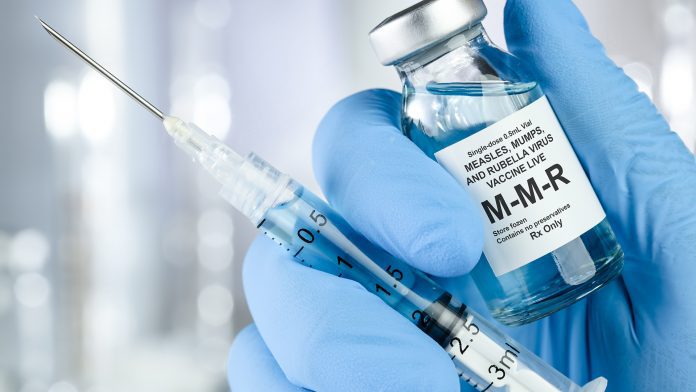
New operational figures published today show the success of the NHS MMR catch-up campaign.
Due to the NHS MMR campaign, tens of thousands more vaccinations were delivered in the first three months of this year compared to the same period in 2023.
The most significant increase in vaccinations was for those aged five to 25 years old, with four times as many vaccinations – 75,499 – in the first three months of 2024 than 18,433 in the same period last year.
Since January, the NHS, UKHSA and local authorities have been urging millions of parents and carers to book their children in for missed measles, mumps, and rubella (MMR) vaccinations to protect children and young people from becoming seriously unwell.
The success of the MMR campaign
Between 1 January and 24 March 2024, there were a total of 360,964 MMR vaccinations delivered, up almost a quarter (23%) from 293,847 in 2023. This included 187,737 first doses and 171,635 second doses.
More than a million parents and carers of six- to 11-year-olds were sent emails, letters and texts inviting them to book an appointment with their child’s GP practice for their missed MMR vaccine.
Throughout February and March, the MMR campaign encouraged over a million children and young adults aged 11 to 25 living in London, the West Midlands, and Greater Manchester to book an appointment.
These areas are most at risk due to the number of people not up to date on their MMR vaccinations.
The NHS is also working with UKHSA on a continued campaign encouraging parents and carers of preschool children to make sure their children are up to date with all their routine vaccinations, including the MMR vaccine.
The latest figures from UKHSA show there have been 934 confirmed cases of measles in England since 1 October 2023.
Steve Russell, NHS national director for vaccinations and screening, said: “It is excellent news that since the NHS launched our MMR campaign, thousands more people than last year have come forward to get vaccinated, with a four-fold increase in the number of five- to 25-year-olds getting that all-important protection.
“Measles is a very serious illness, and so it is vital that everyone who is still unprotected comes forward to get their two doses as soon as possible by contacting their GP surgery or visiting one of the pop-up vaccination clinics running in some of the most at-risk areas.”
Who is eligible to receive the vaccines?
Catching measles can lead to life-changing issues for adults and children, such as blindness, deafness, and brain swelling (encephalitis).
Measles can also have a serious impact on pregnant women, potentially leading to premature birth, low birth weight and still birth.
Health chiefs are urging anyone thinking about becoming pregnant to ensure their MMR vaccination status is up to date because the vaccine can’t be given during pregnancy.
Two doses of the MMR vaccine are needed for maximum life-long protection. The first dose is given around a person’s first birthday, and the second dose is given around three years and four months.
However, anyone can catch up at any age on any missed doses, and it’s never too late to protect yourself. The vaccine doses are typically given via a single injection into the muscle of the thigh or upper arm and are usually delivered with their other one-year and preschool vaccinations.
“We must not be complacent – measles is a serious disease. The MMR vaccine is proven to be safe and offers lifelong protection,” said Health Minister Maria Caufield.
“I urge anyone whose child is not yet fully vaccinated to come forward and help stop this highly preventable disease in its tracks.”









